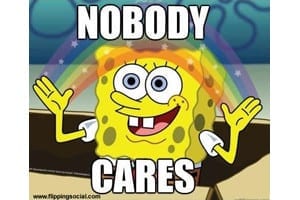BMA15 Round-Up: Engagement Online, In-Person and at the Game
Attendees at BMA15 got tons of great ideas for improving customer relationships, B2B brand presence, engagement strategies and much more. Here’s some key soundbites from some of the featured speakers on content marketing, live events, sports sponsorships and more.
 You’ve Got Content? So What?
You’ve Got Content? So What?
Once upon a time, B2B brands could really differentiate themselves by creating quality content. The problem now is that everyone is producing content, some of it great, some of it not so great. But it’s still out there, causing noise and clutter.
The opportunity now, says Joe Pulizzi, founder of the Content Marketing Institute, is to concentrate on building your audience. Put the other metrics aside, he said.
“We’ve found that people who are succeeding at content marketing focus on one content type, over one main platform, doing consistent delivery, over a long period of time,” he said.
You’re Live and In Person, But Why?
Face-to-face is still a huge component of any good B2B strategy. Is your brand really getting the most value out of its live event and conference experiences?
Many B2B companies simply don’t have an effective strategy in place to capitalize on those face-to-face encounters, said Ruth Stevens, president of eMarketing Strategy and a featured speaker at this summer’s B2B LeadsCon, sponsored by Chief Marketer.
 “Do you know why you’re at an event? What do you want out of it?” she asked. “If your objective is to have a series of conversations with customers and prospects, then encourage your team to make appointments in advance. Don’t show up without specific objectives.”
“Do you know why you’re at an event? What do you want out of it?” she asked. “If your objective is to have a series of conversations with customers and prospects, then encourage your team to make appointments in advance. Don’t show up without specific objectives.”
And make sure your team member have the proper training to effectively engage prospects in person. “The individual is the message,” she said. “Event interaction is a learned skill.”
And remember, the even is only the beginning. Capture contact information and plan for fast and relevant follow-up, said Stevens. “If you don’t have lead nurturing and tracking in place, don’t spend a penny on event marketing.”
Reject the Old Mindset
What’s the single worst thing you can do in marketing? Start off with a product nobody wants or needs.
Of course, marketers don’t always have the luxury of avoiding that situation, says Ryan Holiday, founder/partner of Brass Check Marketing. But, they can stop thinking about their products as static and work on fixing those products from a marketing perspective, find early adopters and create a new mindset.
The idea of “growth hacking” might not be in your marketing vocabulary, but it should be, he said. Growth hackers pursue growth and new users, and they typically work at companies where they can grow the business from nothing to something.
Going viral is not an accident. Good marketers engineer those “random” viral moments from day one, he said. “Build social sharing into your product.”
Consider how Apple and BlackBerry add that little “sent from my iPhone” or “sent from my BlackBerry” tag at the end of every email, adding a branding moment to every email. Uber gave drivers business cards with specific codes on them, not only to help brand the service to customers, but to help recruit new drivers to the service.
“Marketing isn’t just about leads,” said Holiday. “It’s about conversion—retention and optimization are now part of our job as marketers.”
Get in the Game
Sure, big B2C brands like Coca Cola, McDonald’s and Visa have long had major sports marketing presences. But B2B brands like GE and Deloitte have also been in the game for years too, with successful Olympic sponsorship programs.
Sports sponsorships can hit people’s “passion segments” such as sports affinities, and these are really what define people, said Gordon Kane, founder of Victory Sports Marketing and the former vice president of marketing for the U.S. Olympic Committee.
Deloitte uses its ties to sports to help recruit the leaders of tomorrow, by bringing athletes to campuses and having them talk about leadership. Ninety-percent of the college students who saw these messages had a more positive feeling about the company, Kane said.
Likewise, building materials firm USG had Olympians come in to talk to employees to help improve employee morale during tough times in the construction industry. (Read our profile of USG’s Olympic campaign here.) And AON used a sponsorship of Manchester United to help rebrand the company and build awareness with key decision makers.



























